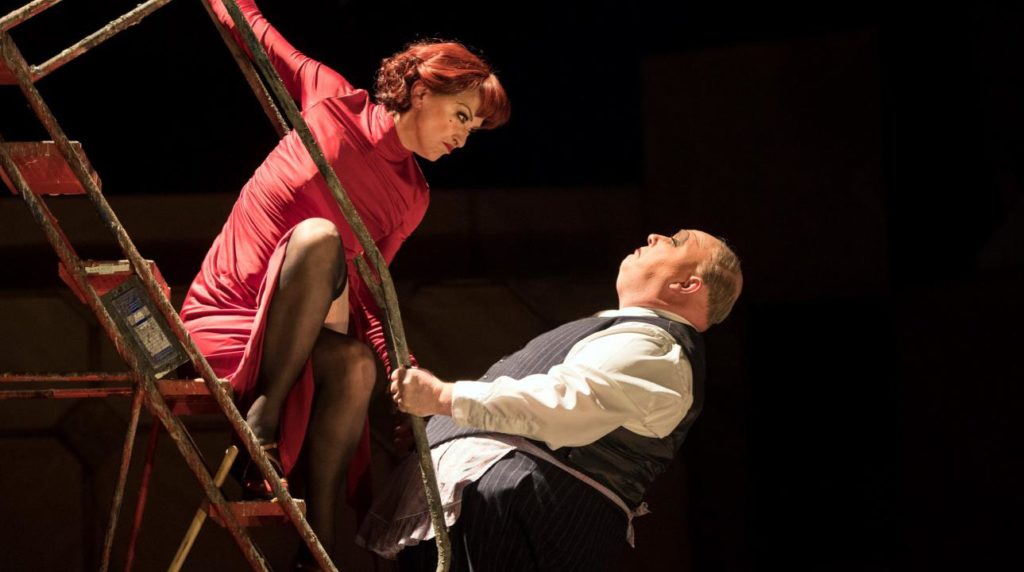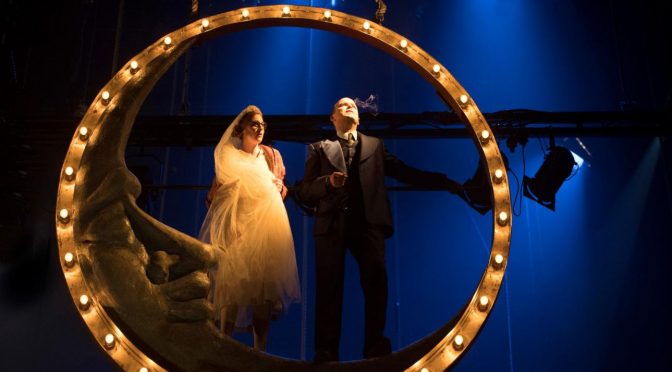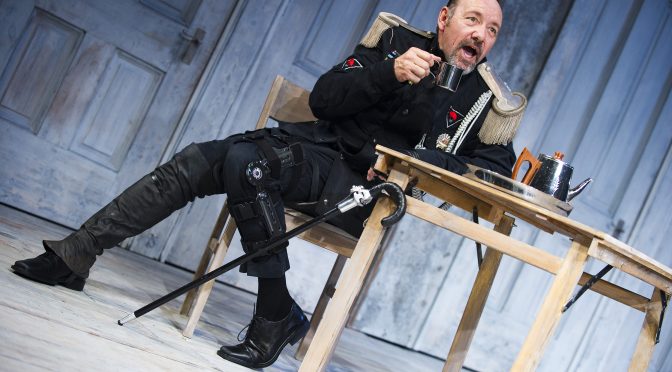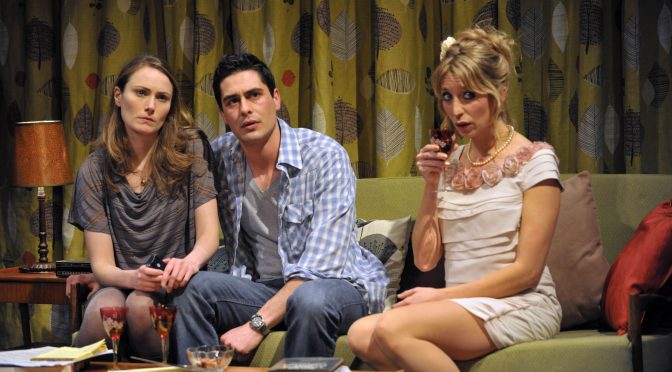While the chance to see Bertolt Brecht and Kurt Weill’s famous work is welcome, regrettably, this production isn’t the finest hour of anyone involved. There’s nothing embarrassing – there are even good bits – but Simon Stephens’ new adaptation lacks charge, while Rufus Norris’ direction of his talented cast is low voltage.
Of course it’s fine to change the original setting (Brecht and Weill used John Gay’s earlier work themselves). Mack the Knife, aka Captain Macheath, the libidinous crook whose adventures we follow, is recast as an East End gangster. Neat enough. But not specifying a time period for this ‘updating’ diminishes its power. The dark reflections on human nature are robbed of satire, falling into a generic gloom that fails to challenge. Stephens’ lyrics are admirably clear, but they can’t shock – no matter how many expletives are crammed in – as it feels those involved would like them to.
The Brechtian staging of the work is tokenistic. There are knowing gags, including Keystone coppery and Buster Keaton, but the production feels lost or, more specifically, better suited to a smaller stage. Regular visitors to the National Theatre will know how powerful the Olivier can be – even empty – but here, Vicki Mortimer’s set of stairs and paper screens feels both slim and cumbersome. And there are a lot of signs to read – tricky from the circle. Impressive moments of staging have to be ascribed to Paule Constable’s lighting.

The biggest disappointment here is the cast. There are good performances when you’d expect great ones. Rory Kinnear takes the lead, his singing voice a pleasant surprise, but even his brilliant acting can’t hold things together. The excellent Rosalie Craig, as his young bride Polly, fails to bring her normal shine (maybe the interpretation of the role as an accountant hampers too much), while Sharon Small, as one of Mack’s many former lovers, sounds painful. The show belongs to the Peachums, Macheath’s enemies, played by Nick Holder and Haydn Gwynne. With this malicious Mr and Mrs, exaggerations in the piece pay off. Elsewhere, this Threepenny Opera feels deflated.
Until 1 October 2016
Photos by Richard Hubert Smith



